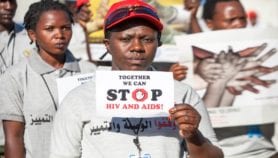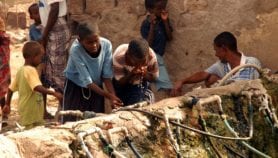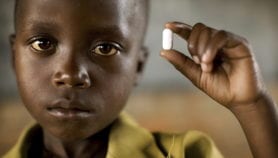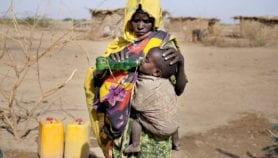16/04/19
Africa making progress in using STI to achieve SDGs

By: Gilbert Nakweya
Send to a friend
The details you provide on this page will not be used to send unsolicited email, and will not be sold to a 3rd party. See privacy policy.
[NAIROBI] Government policies in Africa are increasingly recognising the role of science, technology and innovation (STI) in accelerating sustainable development, a meeting has heard.
In 2015, the UN member countries adopted to use STI to achieve the Sustainable Development Goals (SDGs) by 2030.
“It’s very important to move fast in using STI in solving our problems and catch up with developed nations,” said Adelaide Asante, acting director of science, technology and innovation, Ghana’s Ministry of Environment, Science, Technology and Innovation.
“It’s very important to move fast in using STI in solving our problems and catch up with developed nations.”
Adelaide Asante, Ghana’s Ministry of Environment, Science, Technology and Innovation
The meeting was held in Kenya this month (1-3 April) to discuss efforts of African countries in using STI to achieve the SDGs.
The meeting, which was co-hosted by Kenya-based Africa Centre for Technology Studies (ACTS) and Kenya’s National Commission for Science, Technology and Innovation, lauded countries such as Botswana, Kenya, Rwanda and South Africa for their efforts.
For example, experts praised Kenya for establishing the National Research Fund and the Kenya National Innovation Agency that focus on innovations in sectors such as agriculture, health and the environment. Since 2016, the country has been providing competitive multi-disciplinary research grants to researchers in both public and private institutions.
Tom Ogada, the executive director of Africa Centre for Technology Studies, commended Botswana’s efforts to put in place structures such as the Botswana Innovation Fund, adding that such initiatives can help solve developmental problems affecting the country.
Ogada added that the ratification of Southern Africa Development Cooperation protocol on STI in 2015 gives a legal framework and political support for implementing development programmes.
Mmampei Chaba, chief director of multilateral cooperation, South Africa’s Department of Science and Technology, told SciDev.Net that African countries need increased knowledge sharing platforms, especially in convincing countries that do not appreciate the role of STI in development.
“We need to have conversations among ourselves as Africa first,” said Chaba, explaining that this will help increase South-South technology transfer that could be affordable rather than getting STI solutions from outside the continent, which could be costly and ineffective.
Ensuring that STI policies are based on national, regional and global development blueprints could aid their strong legal and political support for implementation, the meeting added.
This piece was produced by SciDev.Net’s Sub-Saharan Africa English desk.













